Over the past several months, NCLC has implemented a deliberate and conscientious plan to expand its board of directors, adding five new members who bring a diversity of professional and personal backgrounds, experiences, and perspectives.
According to Executive Director Katie Voelke, the land conservancy has benefited from a strong and stable board for many years. Some of the current members have served for more than a decade.
“With deep engagement and wisdom from board members, along with the support of our community members, we’ve achieved great things for local conservation, together,” she says. That wisdom, she adds, guided NCLC’s decision to implement term limits and expand board membership.
“The board knew that an infusion of new and diverse perspectives, now and ongoing, would ultimately lead to greater relevancy and resiliency for NCLC,” she says.
NCLC welcomed any and all members of the North Coast communities and beyond to apply, sharing far and wide about this goal to expand the board. After a rigorous open application and selection process, the organization brought on five individuals who bring “a wonderful infusion of diverse perspectives to our critical work of local conservation,” Katie says.
The new board members, who attended their first board meeting in April, include Harout Akdedian, Narayan Elasmar, Lisa Heigh, Ryan James, and Hugh Morrison. Get to know more about these incredible additions to the NCLC board!
Harout Akdedian
Harout was born in Kuwait, but as a toddler, his family was displaced to Lebanon. This early childhood experience contributed to an ongoing curiosity over the question of home and belonging.
“I wasn’t really looking for a place that I would call home, but rather, I found myself leaving a place that already felt like home,” he says. “By default, the journey of trying to find my feet in other places brought me here.”
Growing up in Lebanon, the country’s share of tumultuous circumstances helped Harout develop an understanding of how one can work hard on preserving their own home and community, but it can be upended very quickly. Part of what draws him to the world of conservation is having witnessed the irreparable devastation of ecosystems, wildlife and communities elsewhere.
“I feel the responsibility of protecting the environmental health of this coastal region that my kids now consider home and feel that they belong to,” he said.
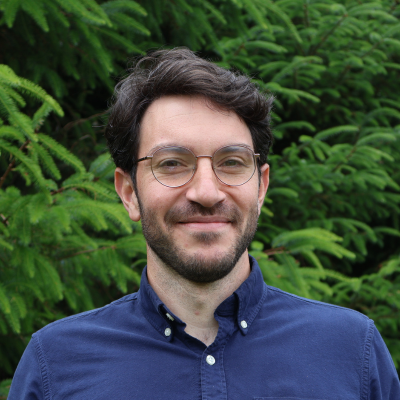
Education played a large role in his movements through life. After receiving an undergraduate degree in Lebanon, he went to Costa Rica to get a master’s degree and then found his way to the U.S. by way of doctoral studies in Australia and post-doctoral fellowships in Hungary.
Professionally, Harout also has had a varied journey, from teaching in universities to running programs for community-based organizations and working in research and civil rights advocacy in governmental agencies. He now works for the Oregon Department of Justice.
From Budapest, he and his family moved to Portland before relocating to Manzanita—where his wife spent portions of her childhood—just prior to the COVID-19 pandemic. They only planned to stay for a couple of weeks, but one thing led to another, and they decided to settle down more permanently.
While Harout was accustomed to more urban environments—and the strong cosmopolitan presence of arts, culture, and academia—he feels he experiences an unmatched quality of life in making a home on Oregon’s North Coast. He sees how the natural beauty and abundance of outdoor spaces are at the core of the quality of life here.
His interests in conservation also lie at the intersections of social equity and environmental justice, specifically around how the quality of life for various communities ties into the quality of our ecosystems and vice versa.
While at times the field of conservation has been complicit in oppressive structures that marginalize and exclude certain people, it has made a shift over the years and “gone toward a more people-centered perspective, as much as an environmental-health perspective,” and he’s passionate about further exploring “synergies between those two,” he says.
He first became involved with NCLC through the Cross-Cultural Cohort, where members engaged in conversations that centered those questions and focused on what kind of changes could lead to a more people-centered and equity-based forms of conservation. As a board member, he looks forward to further exploring the correlations and intersections between conservation, social justice, and social equity.
“I’m really interested in the connections between the history of the land and the people of the land and exploring those linkages based on the social issues we face today,” he says. “How can this land we protect be a service to people who are looking to find refuge, to thrive and belong?”
He hopes to continue promoting “inclusivity through conservation versus exclusion through conservation.” When it comes to the environmental wealth that is present on the Oregon North Coast, he feels that “a lot of the decisions that are being made now or the way we’re going about development now is really laying out the groundwork for what kind of future it’s going to be.” It’s important to build supportive relationships through which effective collaboration can occur to confront the challenges we are already facing.
“You are what your environment is,” he says. “We are living through this environment, and we are shaped by this environment. Given the challenges we share, I lean into that community of people who are committed, who are contributing, doing their best, finding joy, being shoulder to shoulder.”
Narayan Elasmar
Born in Colombia, Narayan moved with his family to Miami when he was 5 and then bounced around Florida throughout his youth. At a young age, he started scuba diving, which inspired his love of the natural world, and especially the ocean, and sparked his interest in becoming a marine scientist.
That relationship to the natural environment now “rules my professional life and my personal life,” he says. “I’m always outside amongst it. I strive to repair what needs to be repaired and also to enjoy it and be immersed in it during my personal time.”
Narayan attended Florida Atlantic University and majored in marine biology with a focus in fisheries. After that, he worked with marine mammals and transitioned into fisheries work with the National Marine Fisheries Service. Although primarily located in Massachusetts, the job also took him to other spots along the East Coast and the Gulf of Mexico.
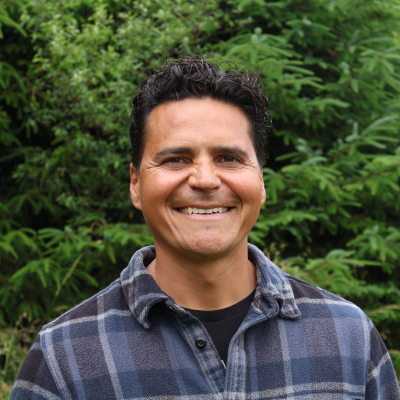
With his now-wife, they decided to travel abroad for a year. After they returned to the U.S. in 2012, they moved to Astoria when Narayan got a job as a fisheries observer with NOAA Fisheries, also known as the National Marine Fisheries Service.
They now have a 7-year-old daughter, and Narayan cites her as part of the reason he decided to join NCLC’s board. He wanted to show her an example of what it means to be a steward of “our beautiful landscapes, rivers, oceans, and forests of the Pacific Northwest,” as well as the concept of giving back through volunteerism “to a place of community and conservation.”
For the past 11 years, he’s worked for the Astoria-based Columbia River Estuaries Study Taskforce (CREST) as a fisheries ecologist. That entails a variety of tasks related to fishing, botany, plant surveys, topographic surveys, drone work, and GIS. CREST is actively involved in restoration work in the area, but they don’t hold any lands.
“That’s another thing that attracts me to NCLC,” Narayan says, referencing the organization’s mission of conserving and caring for coastal lands and waters in perpetuity. “That stewardship is something I respect and want to be a part of.”
Another reason he wanted to join NCLC was the organizational culture. “It’s a very compelling culture that I want to be a part of and I want to bring my family into it as well,” he says.
He looks forward to serving as a board member and contributing his skillset and experience to benefit NCLC. He is currently serving on the committee for the Marine Program, centered around the Cape Falcon Marine Reserve, which is the Oregon Department of Fish and Wildlife’s northernmost marine reserve, located off Oswald West State Park. In that capacity, he can apply his extensive background in marine science. Additionally, he’s been part of the community for a long time and developed important relationships with other people and organizations that can augment NCLC’s work.
“I feel like I’ve proved I’ll be here for a while and I’m here in good conscience to contribute to the positivity and the community aspect of ethnicity,” he says. “My ethnicity and background might also help to attract other people of color to use NCLC properties or for people to show interest in NCLC.”
Outside of work, Narayan also enjoys traveling with his family and a variety of outdoor activities, such as hiking, biking, running, camping, and backpacking.
Lisa Heigh
Lisa grew up on the coast of Massachusetts, in Beverly, across the street from a large marsh. She has many memories of playing make believe, ice skating, and foraging around the wetland, as well as exploring the nearshore ocean.
“I was very lucky as a child,” she says. “I had a lot of natural experiences.”
She attended the University of Massachusetts, double majoring in English and journalism, and then traveled out west after graduating, settling in San Francisco for more than a decade. After a brief stint as a journalist, she made her way into the restaurant industry, doing a variety of jobs and cooking in different styles. From there, she relocated to Oregon to further her education, first at Southern Oregon State University and then Oregon State University for a graduate degree in marine resources, with a focus on aquatic pollution.
She spent four- plus years working at what is now the Tillamook Estuaries Partnership (TEP) and then moved to Astoria for a job with the Lower Columbia River Watershed Council. The basin was having a watershed assessment done and she was the local project manager.
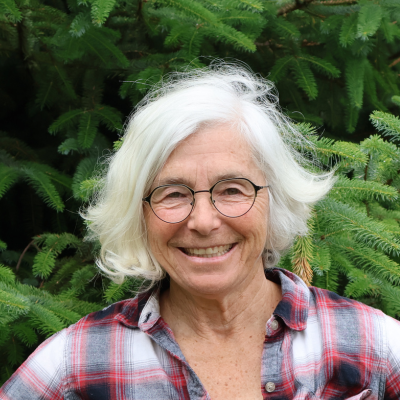
From there, she started a profession in solid waste management in the Portland metropolitan area, enabling her to apply her knowledge and love of chemistry, as well as cultivate her interests in public policy, adult education, and community based social marketing.
Over the next 15-plus years, she got to be involved in numerous projects with the agency and its many partners, including Oregon’s Toxic Free Children’s Act, an all-age visitor education program at the Oregon Zoo that focused on consumer products whose manufacturing impacted wildlife around the globe, and an in-house integrated pest management program.
While she had interest in the sciences as a child, she feels it was a natural trajectory to pursue them professionally later in life.
“As a woman growing up in the ’70s, I really didn’t know what was available,” she says. Even when getting her master’s degree in the 1990s, only a small percentage of US women had master of science degrees. “It has changed dramatically, especially in the biological sciences.”
Some of Lisa’s past professional experience also include working with private land managers as a field biologist doing old-growth surveys; working through the Oregon Sea Grant Program on a waterfront revitalization plan for the cities of Warrenton, Oregon, and Raymond, Washington; and working for the U.S. Forest Service in their fisheries research station at OSU.
In 2020, she moved back to Astoria, the coastal town that she felt was “the most like where I grew up.” By then, she had retired from Oregon Metro to spend more time with her mother in New England and with her grandchildren.
Throughout Lisa’s life, volunteerism has played an important role. She served as the environmental chair for Race for the Cure for about seven years and also volunteered with CASA (Court Appointed Special Advocates) in Multnomah and Clatsop counties, along with the Clatsop County Animal Shelter. Additionally, she serves on the Oregon Department of Forestry’s recreation committee.
She learned about NCLC in the late 1990s; watching the organization grow over the years, she says, “I’ve been impressed by it.” After the COVID-19 pandemic, as the world opened back up, she was searching for more meaningful ways to volunteer. Serving on NCLC’s board of directors was just such an opportunity.
“I want to do something purposeful, something I can have some influence over that is good, especially in this time when there’s so much difficulty,” she says. “I wanted to go to some place that was happy and was doing good work.” On a personal level, she adds, “This job will be great socially for me; intellectually, it will keep me engaged.”
She sees this as the time of life to try new things, such as sitting on a board of this nature—along with practicing archery, boogie boarding and surfing, dragon-boat racing, and horseback riding.
In her first term, she is serving on NCLC’s development committee and helping with the Marine Program. She also looks forward to getting to know people and finding opportunities to connect with others who are focused on “the stewardship of this beautiful spot.” Having a relationship with the natural world, she says, “is like breathing to me.”
“It’s integrated into my life in every way,” she adds. “I try to find different ways all the time to be outside.”
Ryan James
Ryan was born and raised in rural Oregon. While they moved around regularly for his father’s job as a preacher, they would often come back to visit his grandparents throughout his youth and go to the Oregon Coast during the summers. He remembers visiting Newport, eating at Mo’s Seafood and Chowder, going to the aquarium, and playing at the beach.
“The coast has always had a really special place in my heart,” he says.
From the ages of 12 to 15, his family was living in New Zealand, and that’s where he remembers being initially exposed to the idea of conservancy “and taking care of the earth around us.”
“That was right when Greenpeace was at its peak, and New Zealand was at the heart of a lot of that,” he says.
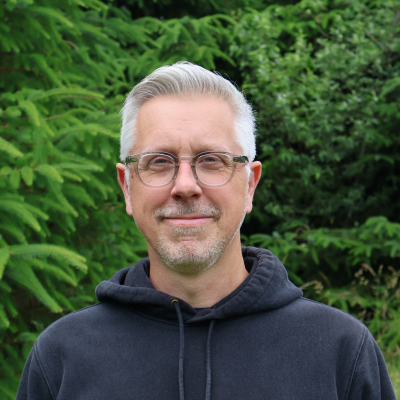
His family moved back to Oregon, settling in Albany, when he was in high school. After graduating he attended Linfield College in McMinnville. Post-college, he lived in Portland, pursuing a job in public relations, and then moved to Seattle for a job in Microsoft. It was there he met his husband, and together they moved to the San Francisco Bay Area.
“He and I joke about it, but whenever we were evaluating where we wanted to live, it always needed to be near water,” he says. It’s part of the reason they decided to move to Manzanita, where they currently live with their two children.
Ryan has always felt strongly about the idea of giving back to one’s community and taking care of our most precious resource, “which is this planet we live on.”
“It’s become more amplified since I’ve had kids,” he says. “It feels even more urgent and more important now.”
He also describes himself as a “problem-solver by nature,” and he sees his new role as a board member as a way to contribute that strength to a meaningful mission. “Part of it was challenging myself to learn something new and also to help other people solve challenges,” he says. Additionally, it enables his volunteer work to facilitate a deeper engagement, and in that way, he feels like it will be more fulfilling.
During his first term on the board, Ryan looks forward to learning more about the organization and how it operates—especially the areas of nonprofit governance that he’s less familiar with—and contributing the skills and knowledge he’s gained during his 30 years of professional communications. He currently serves as the head of communications and sustainability for the national nonprofit KinderCare.
“I really, really love the culture here, and I firmly believe that culture is everything when it comes to organizations, and you can feel it the minute you come in,” he says.
Additionally, being a board member is a venue for him to help care for the coastal ecosystems he loves—benefitting nature as a whole.
For him, the natural environment “is the place where I’m the calmest. It brings me a lot of peace to be in nature,” he says. “It also is a place that fosters a sense on contemplation about our space in the world and, frankly, the smallness of who we are compared to the vastness of the world.”
Having two small children who “desperately want to be outside all the time,” it also gives him the opportunity to see the natural world through their eyes and enjoy “the wonder of that.”
Hugh Morrison
Hugh spent the first few years of his childhood on the Oregon North Coast, having been born in Astoria and living in Arch Cape and Cannon Beach with his family.
Even after they moved to Eugene, they would go back to visit often, spending various weekends on the coast, along with parts of summer, spring and winter breaks.
“It feels like a big part of who I am, not only because it’s where I spent my time growing up and where I kind of connected with the natural world—and the freedom that comes along with that—but also because of longstanding family history there,” he says.
His earliest European ancestors arrived in the 1830s and they were soon followed by others arriving by way of the Oregon Trail.
“All of that makes that a very important place for me,” he says. “It also informs my focus on conservation.”
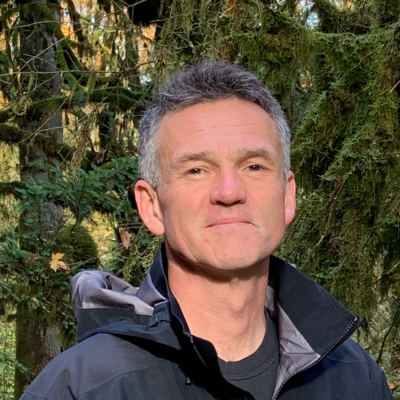
While no place has been fully protected from the impacts of human population and society, it does feel like the North Coast has a lot of land that is still in a “relatively uncontaminated condition,” which provides “greater opportunities for long-term conservation,” he adds.
Hugh majored in political science and environmental studies at the University of Washington. After a few years of working in jobs outside of the environmental field, he went back for a master’s degree in public administration and environmental management. He then started working for the U.S. Fish & Wildlife Service, and he feels extremely grateful for that career because of the agency’s range of responsibilities and goals, “from managing lands and waters in the National Wildlife Refuge System to the regulatory work of environmental conservation.”
“It was a great career that took me all over the country and beyond,” he says. Yet, he never took his eyes off the Pacific Northwest—and Oregon, in particular. “This just feels like the right place for me to be.”
From 2016 to 2019, he took a few years away from USFWS to do nonprofit work focused on conservation and public lands. That exposed him to the Coalition of Oregon Land Trusts (COLT), through which he became more familiar with the work of land trusts and NCLC. He also did advocacy work, learning about the legislative side of environmental policy and conservation and growing his knowledge in new ways, before returning to USFWS and retiring with the agency in May of 2025.
Outside of work, Hugh also enjoys spending time with his wife and two daughters and doing any activities that enable him to be outdoors, from kayaking and biking to hiking and yardwork. His relationship to nature is comprised of two major components: “One is what it provides to me, which is peace and a connection to something larger in the world,” he says. “And then related that is what I believe I owe it, which is the responsibility of continuing to care for the natural world in any way I can that will help to sustain its health into the future, for future generations, not just of humankind, but also the other creatures we share this world with.”
“I have a tremendous awe for the natural world,” he says, adding that every day he’s amazed by its beauty and complexity.
He decided to join NCLC’s board because he was impressed with how the organization is being run and its areas of focus, such as landscape-level habitat connectivity, climate resiliency, and community-based conservation. Additionally, he feels it’s important to continue building relationships and working with groups and communities that have been historically excluded from the movement.
“That’s such a hugely important part for the long-term success of conservation in this country and beyond,” he says.
During his first term, he looks forward to learning about all the aspects of NCLC’s work, including the Marine Program; finding out where there are needs and opportunities for assistance; and also getting his hands dirty with some on-the-ground stewardship work.
“I loved the Fish and Wildlife Service, and I also have tremendous respect for the work of NCLC and other land trusts, because they’re all based on the idea of when we find common ground and work together, that’s when we can have the greatest long-term benefit,” he says. “That’s the promise of humanity: When we can find that common ground and work together towards it. I think that opportunity is always there if people are committed to listening to each other.”
Comments
What great new additions to the Board. Reading these profiles this morning makes me grin.